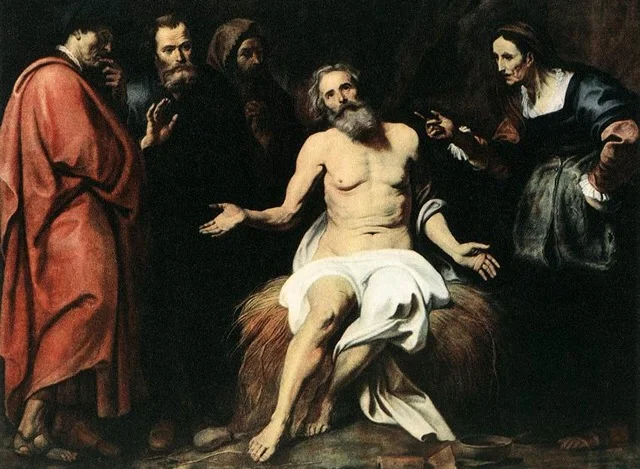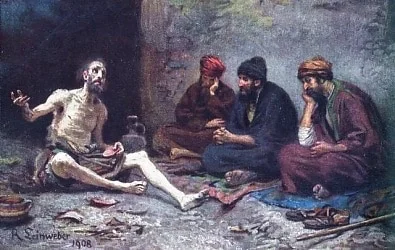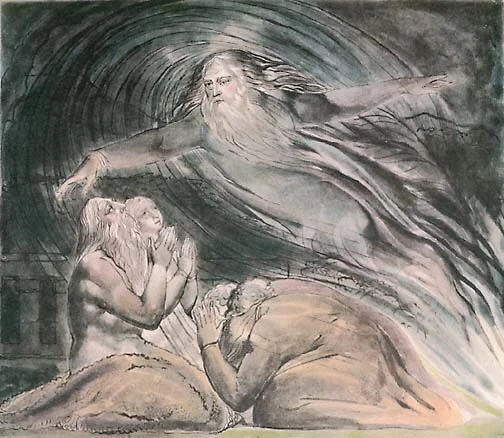Readings for the day: Exodus 29, 30, 31, 32
Exodus 32 is an incredibly important chapter in the Bible. It speaks to humanity’s rebellious nature. The holiness of God. The power of prayer. The consequences of sin. It is deep and profound and a careful reader will absolutely marvel at what she reads.
First, humanity’s rebellious nature. We are so impatient. We have such a hard time delaying gratification. When Moses is delayed on top of the mountain - remember there is still fire and smoke coming from the summit - the people decide to take matters into their own hands. They decide to worship God as they please rather than stay true to what God demands. Aaron, in an incredible display of weak leadership, plays to the crowd’s desires. He fashions a calf. Builds an altar. Declares a feast unto the Lord. This is not what God wants. Now we do need to remember that this scene is playing out in two different locations. Moses is hearing from God on top of Mt. Sinai. He has yet to return and give the people the law. Aaron is in charge down below, trying to keep the peace. The people honestly have no idea what’s happened to Moses. Perhaps they even fear he is dead. So let’s assume the best. They want to worship God. They want to show their devotion. They want to let God know how much they love Him and are thankful for His deliverance. But their failure to wait. Their failure to worship God as He deserves and as He demands is a critical mistake. (One we still too often unfortunately repeat...)
So the camera zooms up to the top of the mountain where God and Moses are still deep in conversation. The Lord spoke to Moses: “Go down at once! For your people you brought up from the land of Egypt have acted corruptly...” (Ex. 32:7) God is angry. His righteous wrath is now aroused. The sin of the people has encroached on His holiness. It offends Him deeply. Viscerally. Their sin is a stench to Him. So He tells Moses - this is important - “your” people whom “you” brought up from the land of Egypt have committed a great sin. God is disowning them as he prepares to destroy them and start all over with Moses. “The Lord also said to Moses: “I have seen this people, and they are indeed a stiff-necked people. Now leave Me alone, so that My anger can burn against them and I can destroy them. Then I will make you into a great nation.” (Ex. 32:9-10) Essentially, God is saying to Moses, I will wipe them out and make you a new Abraham. I will reset the deck yet again and start over with the one faithful man I can find.
Moses is quick to respond. And he prays one of the most important prayers in human history. "O Lord, why does your wrath burn hot against your people, whom you have brought out of the land of Egypt with great power and with a mighty hand? Why should the Egyptians say, 'With evil intent did he bring them out, to kill them in the mountains and to consume them from the face of the earth'? Turn from your burning anger and relent from this disaster against your people. Remember Abraham, Isaac, and Israel, your servants, to whom you swore by your own self, and said to them, 'I will multiply your offspring as the stars of heaven, and all this land that I have promised I will give to your offspring, and they shall inherit it forever.'" And the Lord relented from the disaster that he had spoken of bringing on his people.” (Ex. 32:11-14) Moses is quick to remind God whose people He’s really talking about. These are God’s people. They are the people God delivered by His own hand. If God were to destroy them, God’s reputation would suffer. The Egyptians - before whom God has made Himself known - would begin to doubt and question Him. The promise God had given to Abraham, Isaac, and Jacob would become null and void. This is an incredible prayer of faith. Praying not for mercy but trusting God to be true to Himself. Trusting God to stay true to His character. Trusting God to stay faithful to His promises. There is no question in Moses’ mind that God will remain true to Himself and so Moses prays his prayer in faith.
What are we to make of such a prayer? Is Moses talking God down? Is he talking God off the ledge? Does Moses prayer enact some kind of change in God? Is God the kind of God would could lose control in anger and lash out at His people? These are really important questions to wrestle with as we read. What I believe is happening here is something similar to what took place between Abraham and God when they discussed the fate of Sodom and Gomorrah. God is specifically inviting us into a deep relationship with Himself. A relationship where our prayers are real. Where the thoughts and desires and emotions of our hearts are taken seriously by God. God is still free to act as He sees fit. He still destroyed Sodom and Gomorrah after all. But He did rescue Lot and his family so perhaps Abraham’s prayer was answered? Here Moses intercedes on behalf of the people. He steps into the gap God provides and prays in great faith. His prayer thus creates a new situation to which God responds. No longer are we just talking about God’s holiness and the people’s sin. Now we have a man of faith stepping into the gap. A mediator who intercedes. And God honors the intercessor by relenting from the disaster He had prepared. (By the way, the Book of Hebrews picks up this imagery and assigns Jesus the role of eternal intercessor before the Father.)
Moses’ intercession doesn’t mean there aren’t consequences for sin. Moses comes down the mountain. He shatters the tablets at the foot of the mountain. Grounds the calf to dust and makes the people drink it. There is death as the Levites have to kill almost three thousand people before the sinful revelry settles down. And the chapter closes with a plague sent from the Lord as well as this promise, “Nevertheless, in the day when I visit, I will visit their sin upon them.”
What do we learn from all this? God takes worship seriously. We are to worship Him in the way He demands and the way He deserves. God takes prayer seriously. Intercessory prayer is powerful and effective when it comes from the lips of a righteous man or woman. God takes sin seriously. He will not let us escape the consequences of our actions though He does provide a way - through Jesus - for us to be forgiven and reconciled to Him.









